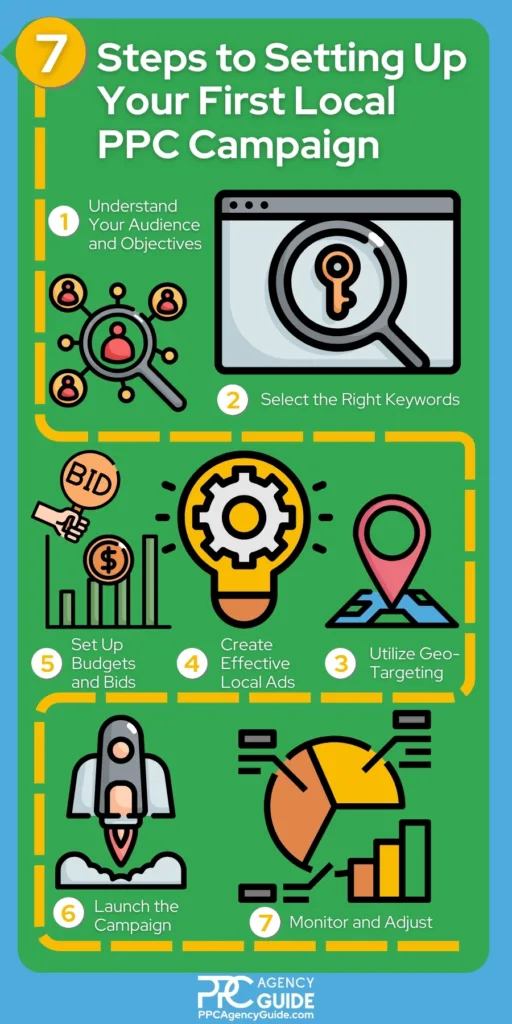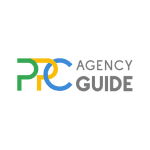
Local advertising once meant hanging a sign in the window or placing an ad in the newspaper. While they may still be somewhat effective mediums for promoting your business, nothing compares to the screens that are in front of your potential customers all day long. Local pay-per-click (PPC) advertising is the most efficient way to get your business on those screens. However, there are nuances to local PPC strategies that even those familiar with running traditional campaigns might miss. In this local PPC guide, you’ll learn small business PPC tips that help you stand out online and get clear strategies that will help you attract and convert more people through effective online advertising.
Local PPC is Crucial for Small Businesses
Local PPC is a local digital marketing strategy designed to help businesses target potential customers within a specific geographical area. This method uses online advertising platforms, such as Google Ads and Microsoft Advertising (formerly Bing Ads), where businesses can create ads that display on search engine results pages (SERPs) or appear on social media platforms. Your company pays a fee each time one of your ads receives a click; hence the term “pay-per-click.” Local PPC is crucial for small businesses for several reasons.
Targeted Reach
Local PPC allows you to narrowly target your advertising efforts to the regions where your potential customers live or work. This means a higher return on investment (ROI) because the ads are more relevant to the audience that sees them.
Cost-Effectiveness
Small businesses often work with limited marketing budgets. PPC campaigns can be adjusted to control costs while maximizing exposure to the right audience. You can set daily and monthly budgets to ensure you don’t overspend.
Immediate Visibility
Unlike organic search engine optimization (SEO), which may take months to build up, local search advertising can provide immediate visibility. This is especially important for new businesses or those in highly competitive markets.
Measurable Results
PPC platforms offer robust analytics, allowing you to measure the effectiveness of your ads in real-time. This data includes the number of impressions, clicks, conversion rates, and more so you can refine your strategies and improve ROI.
Local Intent
In all, 97 percent of people use the web to find local businesses, HubSpot reports. When the search occurs on a smartphone, three out of four people visit a business within a day, and more than one in four will make a purchase, Google notes. Local PPC campaigns can capitalize on this by targeting ads to users searching for specific products or services near them, increasing the likelihood of attracting foot traffic to brick-and-mortar locations.
Local PPC Campaign Setup
Setting up your first local PPC campaign can be a pivotal moment for small businesses looking to attract more local customers. It involves several key steps, including choosing the right keywords and utilizing geo-targeting to ensure your ads reach the desired audience. Let’s dive into these crucial aspects.
Understanding Your Audience and Objectives
Before launching a PPC campaign, it’s essential to define your target audience and what you aim to achieve. Are you looking to increase foot traffic, drive online sales, or boost calls to your business? Knowing your audience and objectives will guide your keyword selection and targeting decisions.
Selecting the Right Keywords for Local Audiences
The foundation of your PPC campaign is keywords. It’s essential to choose keywords potential customers might use when searching for services or products in your area. Let’s review a few tips for selecting effective local keywords:
- Use Local Modifiers: Incorporate location-based terms into your keywords, such as city names, neighborhoods, or even landmarks. For instance, “Italian restaurant in downtown Boston” or “Miami beach surf shop.”
- Think Like Your Customer: Think about the search terms your customers might use when looking for your products or services. Explore using keyword research tools like Google Keyword Planner, which can provide insights into search volume and competition for specific keywords.
- Longtail Keywords: Longtail keywords are longer, more specific keyword phrases. They’re less competitive and can drive more qualified traffic. An example would be “best organic coffee shop in London” instead of just “coffee shop.”
Utilizing Geo-Targeting in PPC to Reach the Right Locality

Geo-targeting allows you to specify the geographical area where your ads will be shown. This ensures that your local market advertising budget is spent on reaching potential customers within a specific location where your business operates. Let’s review some tips for using geo-targeting effectively.
Define Your Area
Consider targeting local audiences by country, city, or even a specific radius around a location. Keep your business reach in mind. For example, a bakery might target a smaller area than a specialty furniture store that can attract customers from a wider region.
Use Advanced Location Options
Platforms like Google Ads allow you to customize your targeting further by choosing to show your ads to people in your targeted location, people searching for your targeted location, or both.
Adjust Bids by Location
You can set different bids for different locations based on their importance or the level of competition in those areas. This means you can increase your bid for more competitive but crucial areas while lowering it for others.
Creating Effective Local Ads
Creating effective ads is crucial for the success of any local PPC campaign. The goal is to attract attention and resonate with the local audience, compelling them to take action.
Crafting Ad Copy that Resonates Locally
Let’s start by breaking down how to craft ad copy that resonates locally.
Highlight Local Relevance
Make sure your ad copy speaks to the local aspects of your business. Mentioning specific places in the region, landmarks, or local events can make your ad more relevant and engaging to potential customers. For example, “Visit us after the Springfield Community Fair for special discounts!”
Use Local Language and Phrases
If your area has specific dialects, slang, or phrases, incorporating them can make your ads feel more personal and tailored to the local community. However, ensure that it remains professional and understandable to newcomers as well.
Emphasize Local Specialties or Offers
Highlighting products, services, or offers that cater specifically to local tastes or needs can increase the appeal of your ad. For instance, a restaurant might advertise a dish that’s popular in the region.
Include Local Contact Information
Make it easy for potential customers to find or contact you by including local phone numbers or addresses. This also reinforces your business’s local presence.
Test and Refine
Ad copy can always be improved. Use A/B testing to compare different versions of your ads to see which resonates best with your local audience.
Utilizing Localized Landing Pages
Just as your ad copy should reflect the locality, your landing pages should get a makeover, too.
Tailor Content to the Local Audience
Your landing page should reflect the local elements mentioned in your ads. This includes text, images, and offers that appeal specifically to the local market. A landing page for a store in Miami, for example, might feature beach-themed imagery and products ideal for warm climates.
Include Localized Offers and Promotions
Just as with your ad copy, any special offers or promotions mentioned should be relevant to the local audience. Exclusive discounts for locals or deals tied to local events can be very effective.
Optimize for Local SEO
Ensure your landing page is optimized for local search engine optimization (SEO). This includes having the city or region name in the page title, meta description, and throughout the content where relevant.
Provide Clear Local Contact Information
Make it simple for visitors to contact or visit your physical locations. Include a local phone number, address, and even a map or directions if applicable.
Mobile Optimization
Nearly 60 percent of local searches are completed on mobile devices, ReviewTrackers reports. These are often performed by users on the go looking for immediate information. Ensure your landing pages are mobile-friendly, with fast load times and easy navigation.
Budgeting and Bidding in Local PPC
Managing budgets and bidding effectively are pivotal elements of local PPC campaigns that enable you to maximize your return on investment while reaching your target audience efficiently.
Managing Budgets for Local Campaigns
Let’s dive into how you can manage budgets for local campaigns first.
Start with a Clear Objective
Your budgeting should align with your business objectives, whether it’s increasing foot traffic, generating leads, or boosting online sales. Decide what success looks like for your campaign, as this will influence how you allocate your budget.
Determine Your Initial Budget
Start with a budget you’re comfortable with, considering the competitive landscape of your local market. Google Keyword Planner is helpful here. Use it to estimate the cost per click (CPC) for your targeted keywords, which can help you set a realistic initial budget. Our PPC budgeting guide can provide insights on how much to spend, too.
Allocate Budget Based on Performance
Not all ads or targeted areas will perform the same. Monitor your campaign’s performance closely and reallocate your budget to the ads, keywords, or locations that generate the best results. This dynamic approach ensures you’re investing more in what works.
Consider Seasonality and Local Events
Your budget may need to fluctuate based on the season or local events that could influence demand for your products or services. For instance, a local flower shop might increase its budget around Valentine’s Day or Mother’s Day.
Bidding Strategies for Local Markets
Bidding on local PPC campaigns is similar to traditional campaigns but with a few refinements.
Understand Bidding Options
Platforms like Google Ads offer various bidding strategies, including manual CPC, where you control your bid amounts, and automated strategies like Target Cost Per Acquisition (CPA) or Maximize Clicks, which adjust bids based on your goals.
Start with Manual Bidding
For new campaigns, starting with manual CPC bidding can give you more control over your spend and the opportunity to understand how different bids impact your ad placement and performance. Once you have enough data, you can consider automated options.
Use Geo-Targeting to Adjust Bids
Increase or decrease your bids for certain locations based on performance or strategic importance. For example, if certain areas are more profitable or have a higher conversion rate, you might bid more aggressively to ensure your ads are seen there.
Consider the Competitiveness of the Local Market
In highly competitive markets, you may need to bid higher to secure ad placement. Use tools like Google’s Keyword Planner to gauge the competition level for your targeted keywords and set your bids accordingly.
Experiment with Different Strategies
As your campaign progresses, experiment with Google Ads’ automated bidding strategies to see if they can improve your results. For instance, if your goal is lead generation, testing the Target CPA strategy might lead to better cost efficiency.
Measuring and Optimizing Local PPC Performance
Measuring and optimizing local PPC performance is crucial for ensuring your campaigns are not only reaching their intended audience but also delivering on your business objectives efficiently.
Key Metrics for Local PPC Success
If you’re already tracking PPC success with other campaigns, the same metrics will work for local PPC. A few of the most important are covered below.
Click-Through Rate (CTR)
This measures the percentage of people who see your ad (impressions) and then click on it. A high CTR indicates that your ad is relevant and engaging to your target audience.
Cost Per Click (CPC)
This is the amount you pay each time someone clicks on your ad. Monitoring CPC helps you manage your budget effectively and understand the competitiveness of your targeted keywords.
Conversion Rate
This measures the percentage of clicks that result in a desired action, such as a purchase, sign-up, or form submission. A high conversion rate suggests that your ad and landing page are effective at persuading visitors to take action.
Cost Per Acquisition (CPA)
This metric shows the average cost of acquiring a customer who takes a specific action, like making a purchase. It’s vital in understanding the return on investment (ROI) of your PPC campaigns.
Return on Ad Spend (ROAS)
ROAS calculates the revenue generated for every dollar spent on your PPC campaign. It’s a direct indicator of the profitability of your ads.
Quality Score
This is a measure of the quality and relevance of your keywords and PPC ads. It affects your ad position and CPC. A higher quality score can lead to lower costs and better ad positions.
Effective Local PPC Practices for Ongoing Optimization
Plan to spend a little time each week optimizing local PPC ads. This will help ensure their performance improves over time.
Refine Your Keywords
Continuously review the performance of your keywords. Pause or adjust bids on underperforming keywords and explore new keyword opportunities to ensure your ads remain relevant to your target audience.
Optimize Ad Copy
Test different headlines, descriptions, and call-to-actions (CTAs) to determine what resonates with your target audience. A/B testing can help identify the most effective ad copy.
Improve Landing Pages
Ensure your landing pages align with your ad copy and provide a seamless user experience. Test different elements, like layouts, images, and CTAs, to improve conversion rates.
Utilize Advanced Bid Strategies
As you gather more data, consider using advanced bidding strategies like Target CPA or Target ROAS to optimize for conversions or revenue, respectively. These strategies can help automate bid adjustments based on your goals.
Geographic Performance Analysis
Assess the performance of your ads in different locations. You may find that some areas have a higher ROI, which could influence your bid adjustments and budget allocation.
Schedule Your Ads Effectively
Analyze when your ads perform best and adjust your ad schedule accordingly. This ensures your ads are shown at times when your target audience is most active and likely to convert.
Leverage Negative Keywords
Use negative keywords to exclude irrelevant search queries. This helps improve your campaign’s focus and reduces wasted spend on clicks that are unlikely to convert.
Monitor Competitor Strategies
Keep an eye on competitors’ PPC strategies. Tools like SEMrush or SpyFu can provide insights into their keywords, ad copy, and landing pages, which can inspire adjustments to your own campaigns.
When to Bring in a Pro
In some situations, it might be more beneficial for businesses to hire a professional or a PPC agency to manage local PPC campaigns. Here are some circumstances when considering external expertise could be advantageous.
Lack of In-House Expertise
If your business doesn’t have someone with the necessary skills and experience in managing PPC campaigns, it might be wise to hire an expert. PPC management requires understanding complex platforms, strategies for keyword research, ad copywriting, data analysis, and ongoing optimization to ensure the effectiveness of campaigns.
Time Constraints
PPC campaigns demand continuous monitoring, tweaking, and analysis to maximize return on investment. For small businesses or those with limited marketing staff, dedicating enough time to manage these campaigns effectively can be challenging. In such cases, outsourcing to a professional or agency can save valuable time.
Complexity of Campaigns
As businesses grow or if they’re operating in highly competitive markets, PPC campaigns can become increasingly complex. Managing multiple products or services, targeting various geographic locations, and optimizing for different platforms may require a level of expertise and resources that an agency or a dedicated professional can provide.
Need for Advanced Strategies and Tools
PPC agencies and professionals often have access to advanced tools and technologies for keyword research, competitor analysis, bid management, and performance tracking. They also stay up-to-date with the latest trends and algorithm changes, which can provide a competitive edge to your campaigns.
Poor Performance or Scaling Challenges
If your current PPC efforts are not delivering the expected results, or you’re struggling to scale your campaigns effectively, it might be time to seek professional help. An expert can conduct a thorough audit of your campaigns to identify issues and opportunities for improvement, implementing strategies that can turn around performance.
Cost Efficiency
While hiring an agency or a professional involves costs, it can actually be more cost-efficient in the long run. Experts can optimize your budget allocation, reduce wasted ad spend, and improve your overall campaign ROI, potentially saving you more money than if you were to manage campaigns in-house without the same level of expertise.
Specific Goals or Projects
For businesses with specific, short-term goals or projects that require PPC support (like a product launch or promotional event), bringing in a specialist for a limited time can be more practical than hiring a full-time employee.
Get Help Implementing the Tips from Our Local PPC Guide
Deciding to hire a PPC professional or agency should be based on an assessment of your current resources, capabilities, and business objectives. For many businesses, especially those facing the above situations, external expertise can bring significant value, driving better performance and growth through more effective and efficiently managed PPC campaigns. If you’d like to explore your options, request a complimentary PPC consultation.



















